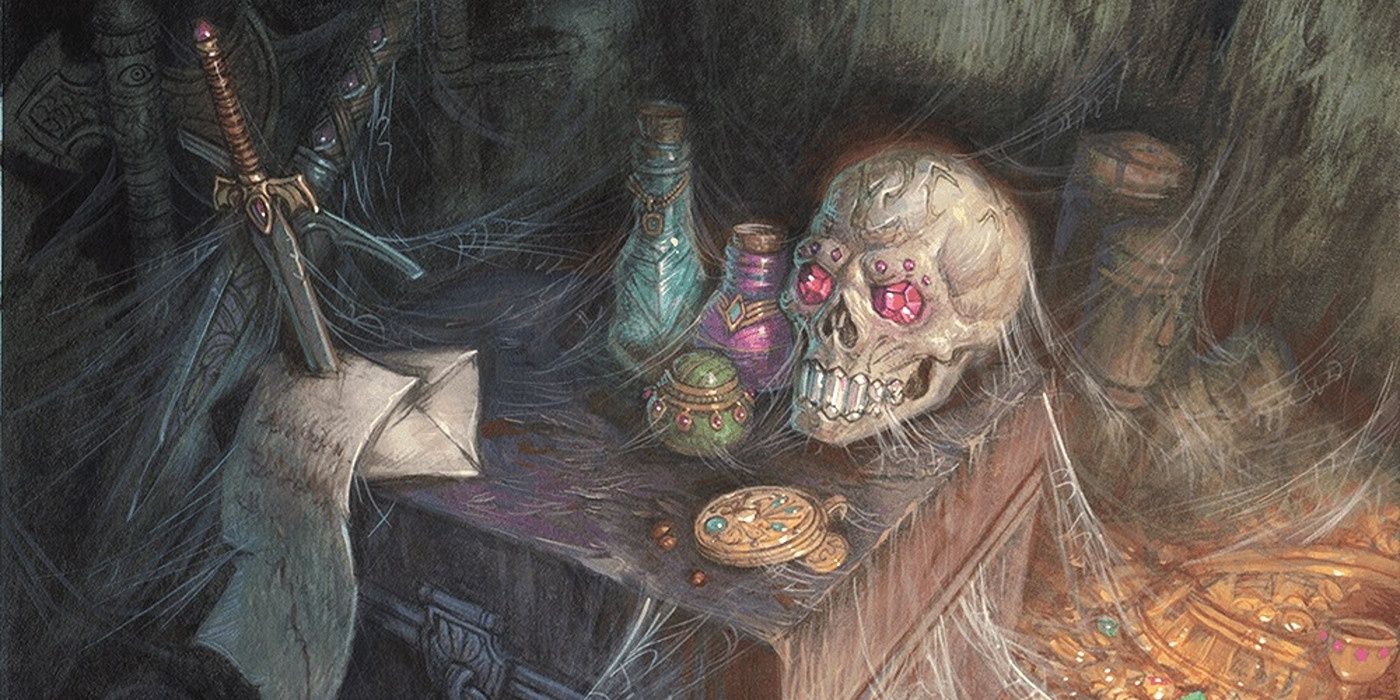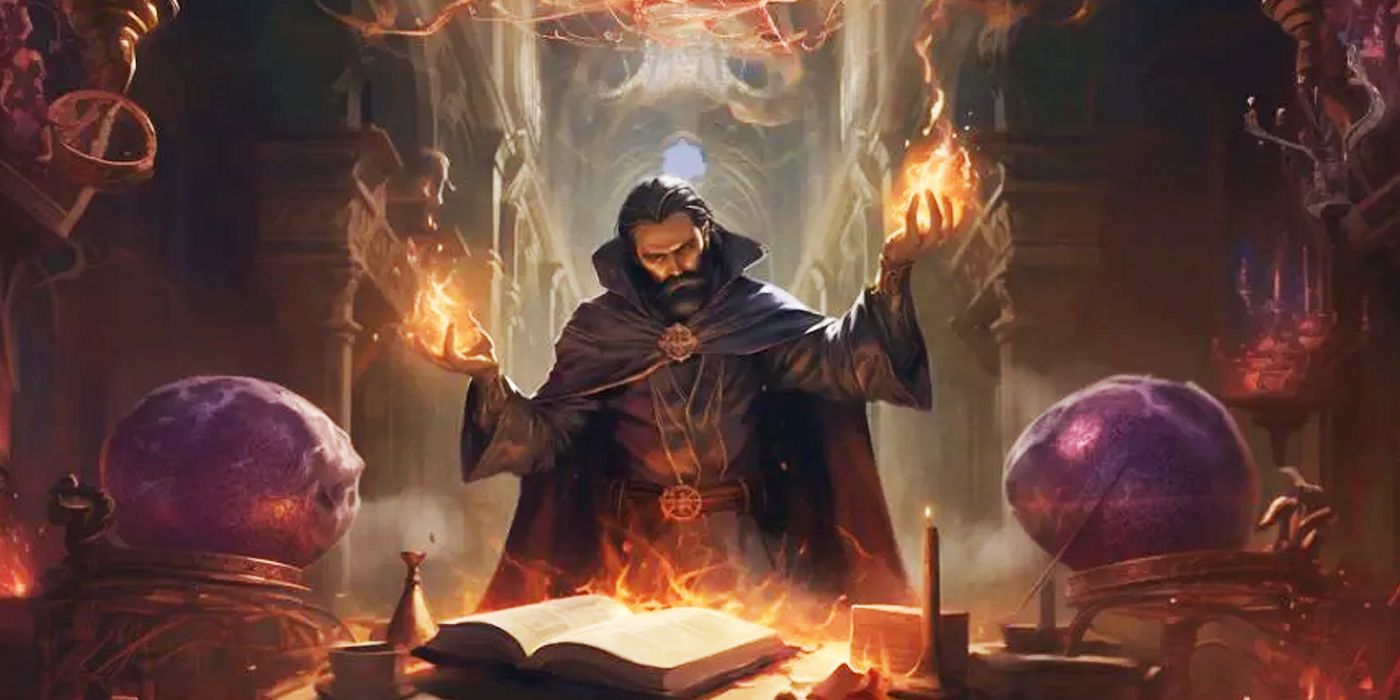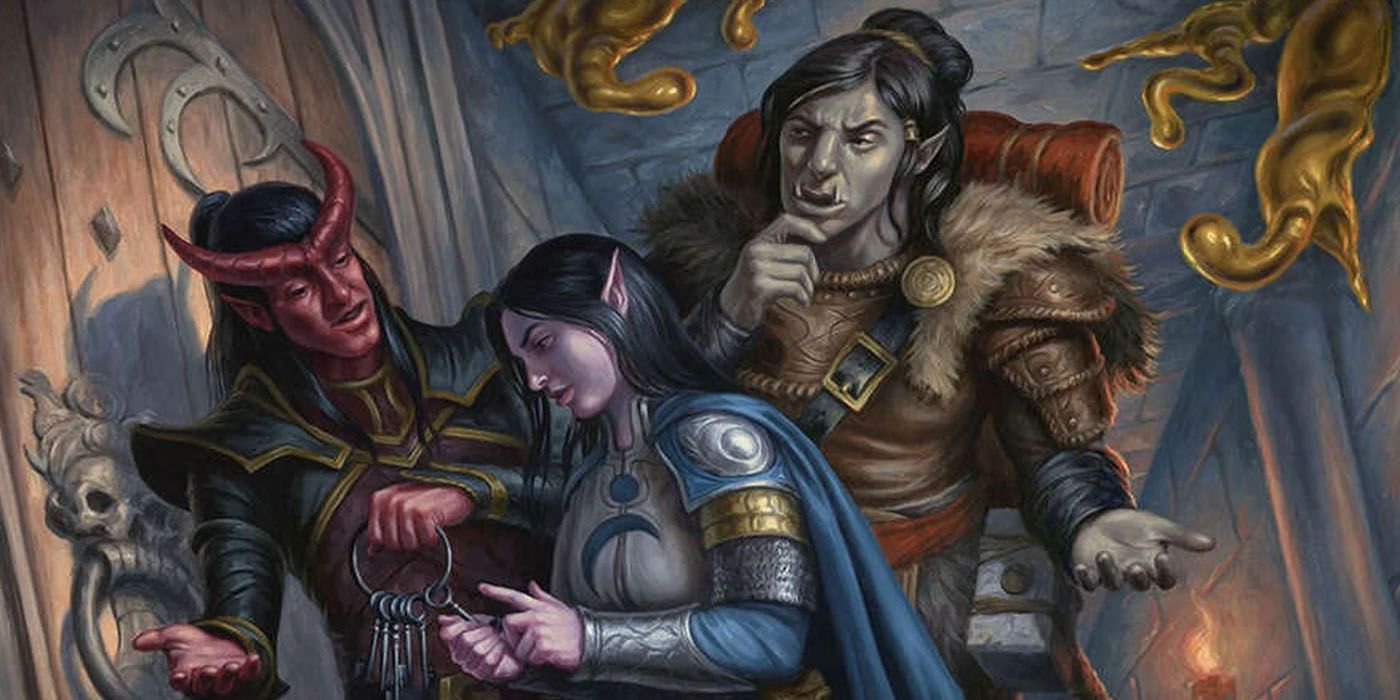Shopping
How To A Handle A Shopping Session In DnD
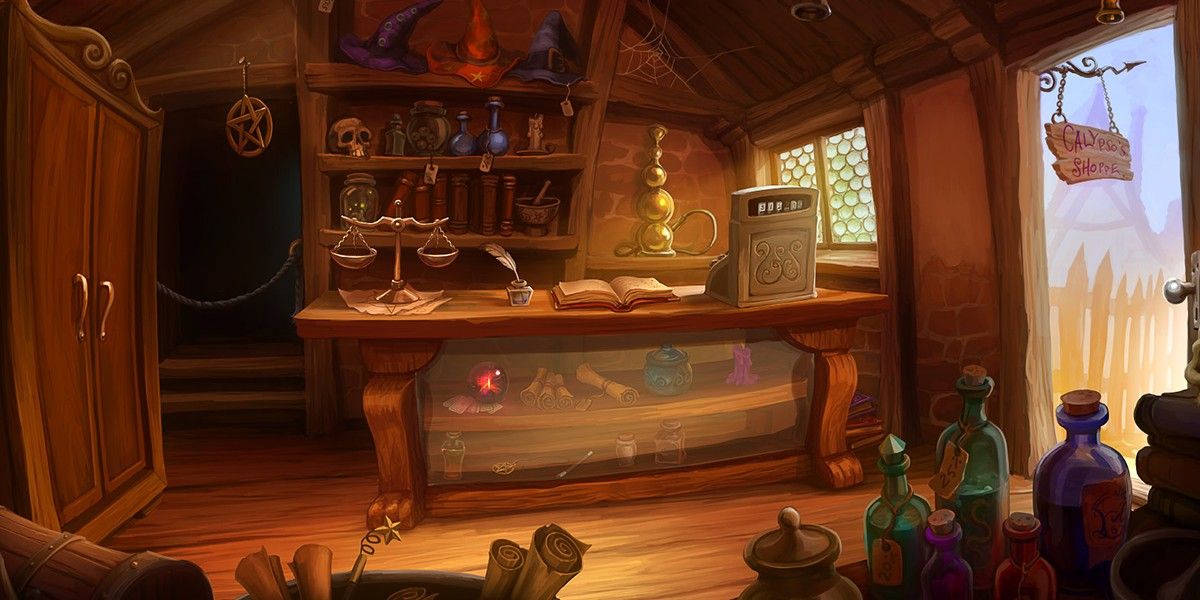
Summary
- Shopping in
D&D
is essential for gearing up, role-playing, and adding realism to the game world. - Different types of shops like blacksmiths, apothecaries, and tailors offer unique items for players.
- Merchants in
D&D
can provide memorable experiences, fun interactions, and creative role-playing opportunities.
Dungeons & Dragons is a wildly immersive and nuanced fantasy roleplaying game. But even in a mysterious land of imaginative fantasy there needs to be somewhere to buy new pants. This is where shops, merchants, and inventory come into play. Every D&D campaign needs a shopping spree day now and then. Players need ways to gear up, find the latest fashions, and try out their Charisma rolls for discounts, after all.
Not to mention that shopping districts or general stores make the towns the players visit seem more realistic and alive. Having shops available for the players gives them the opportunity to customize their gear, ask about local information, and test out their Sleight of Hand Proficiency. Sometimes shopping in D&D can be a quick trip to the apothecary for healing potions before a dungeon crawl. Sometimes it can take an entire session to gear up the PC party or find the special item they’re looking for. Not every campaign needs to rely on shopping, however. Players can get their gear exclusively from looting if the DM is prepared and generous enough. But there will still need to be loot pools to draw from. This is where the DM gets to have a lot of fun and stretch their imagination. Shops, merchants, and inventory pools are the perfect place to get creative, have a little fun, and sprinkle in some laughs and mischief.
Types Of Shops:
- Apothecary — Everyone needs health potions (and poison).
- Blacksmith — Everyone needs a good blade.
- Tailor — Time to buy a sweet velvet cape!
- Armorer — Prevent yourself from taking an arrow to the knee.
- Grocer — If your campaign uses hunger mechanics, you’ll need somewhere to get a burger.
- Magic Item Shop — Where else can you buy a magic monkey’s paw that grants wishes?
- Any kind of shop can exist in your world — What might your PCs need for their adventure? Make a shop for that.
15 Legendary D&D Magic Items That Won’t Break Your Game
There’s nothing better than collecting new loot in Dungeons & Dragons, and there are plenty of powerful magic items that still keep the game fair.
While not every campaign needs to rely on shopping for gear, most towns the players visit would realistically be home to some kinds of shops. The citizenry needed to get their supplies from somewhere, and the PCs would have access to those same methods of acquisition. Even if the sleepy town only has one general store, there should be somewhere in the backdrop where the PCs can spend their hard-earned coin. Shops should also be varied and appropriate to the location and plot point in the campaign. If the PCs haven’t won any gold yet, don’t fill the town they’re in with luxury stores where they can’t afford anything. Unless that is, the goal is to entice them back to that location in the future. Sometimes putting quality items out of reach can give the players incentives to earn some cash and revisit a place they’d otherwise overlook.
As a general rule, however, most of the shops and items the PCs encounter should be within reasonable reach. Allowing Players to gear up sufficiently before a difficult undertaking or fight is just good manners. Shops can also be fun places for players and DMs to use their imaginations and get silly. Tailors and clothing stores can allow PCs to acquire fun cosmetic items that don’t affect gameplay but let them have a bit of fun with their characters’ appearance. Perhaps the party’s bard notices a purple velvet 3-piece suit in the window of that tailor’s shop. Perhaps he also perceives an orange suede top-hat in the window of that haberdashery. Now, nothing about gameplay has changed except everyone in town notices how stylish this man is. Maybe a benevolent DM gives this Bard a surprise +1 to all Charisma rolls as long as he’s wearing this deluxe ensemble. All of this is possible because the town the players happened to be in had a few good shops.
Take Advantage Of The Shop-portunity
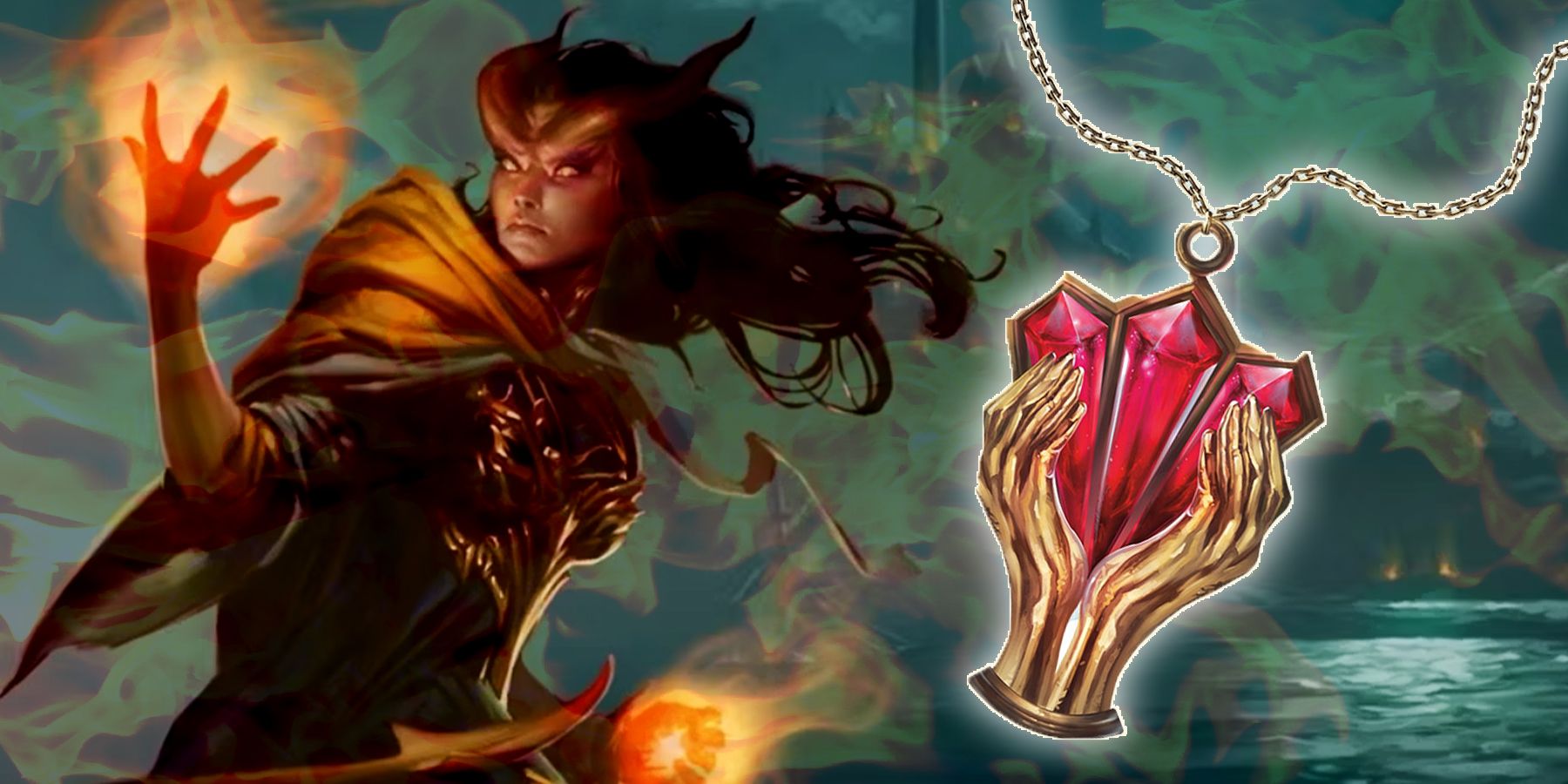
15 Best Magic Items For Sorcerers In D&D 5e
Sorcerers are consummate magic users, and they benefit greatly from the wide arsenal of magic items available in Dungeons & Dragons.
Shopping is hardly the point of D&D, but it is a sometimes-necessary part of it. Use the opportunity to have some fun and get creative as a DM. Does the party have an elven ranger who loves animals? Mention an exotic pet store in the downtown shopping district and see what happens. Maybe the Ranger finds herself a spectacular golden-feathered Macaw who shouts a cryptic phrase over and over again. Now we’ve got a mystery on our hands! It just became side quest time.
There is no limit to the imagination and practicality involved in creating a few shops, merchants, and inventory for use in-game. That being said, vary the kinds of shops players find from location to location. An inland desert town wouldn’t sell parts for a sailing ship, but they would sell items to protect the PCs from dehydration and sandstorms. Things like magic canteens and cloaks that hide the wearer’s face entirely. Just as a town in the medieval countryside would not sell such things. Perhaps, though, they would carry enchanted farming tools like a shovel that the PCs need to dig up the treasure hidden at a secret location the golden-feathered Macaw led them to.
Not every shop the PCs encounter should be the same, or carry the same inventory. Unless the world has a chain of mega-stores owned by a successful and mysterious mega-merchant, of course. But if the DM or the players need a specific type of shop, then go ahead and create one. Typically, there are some standard-issue shops, like an apothecary for potions and poisons, a blacksmith for weapons and possibly armor, or a separate armorer shop. There can also be tailors, grocers, magic supply, and magic item vendors. Having a unique curiosity shop where PCs can acquire strange items from far-off lands is a fun addition to any campaign. And it’s a good excuse to break out the Wild Magic Table!
Once the basic shop types are down, the DM can move them wherever they’d like. Not every location will have everything the players need. It’s more realistic and incentivizes the PCs to move where they need to be. Perhaps they need special weapons to take down a dragon, but they’re only available in the mountains where they happen to need to locate an old wizard. Now the players have two good reasons to get going where they need to be. This is a subtle but effective way to keep the campaign on course without railroading the players. Use shops and items to do the work.
Gearing Up With Inventory, Merchandise, And Loot
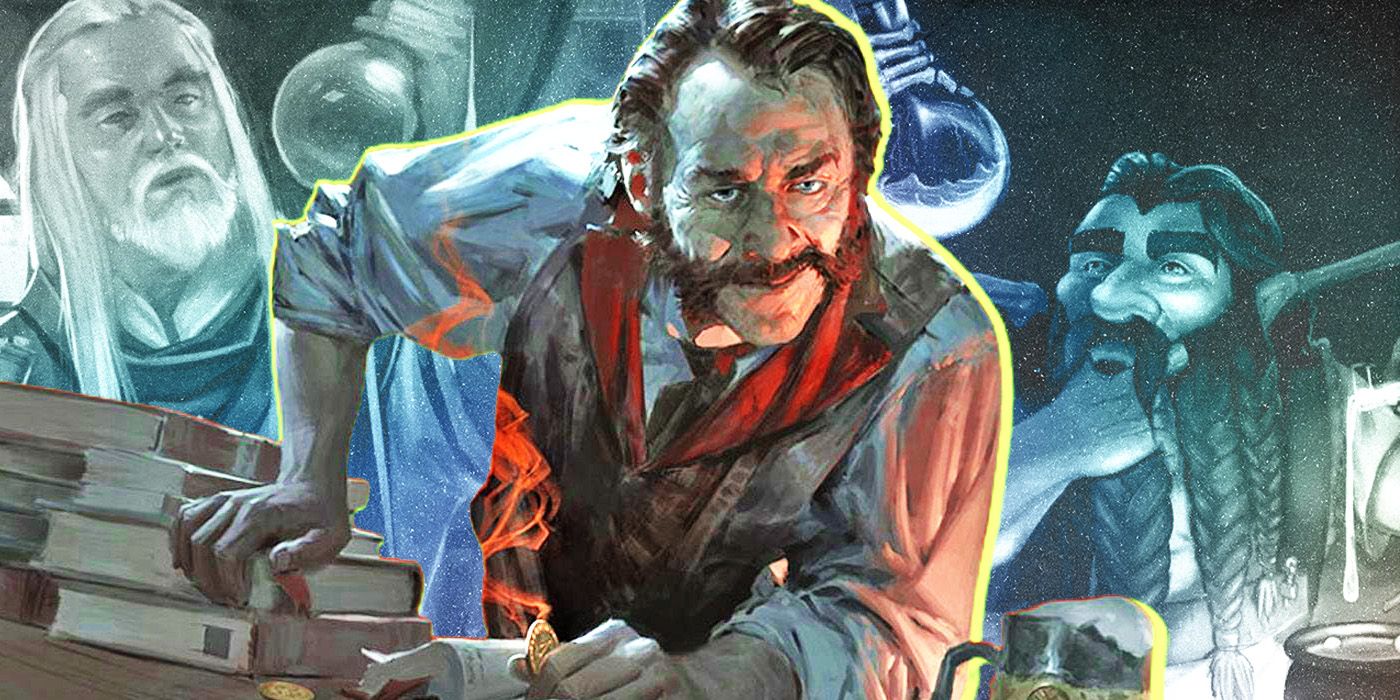
Dungeons & Dragons: Tips For Homebrewing NPCs
Creating living, breathing, functional NPCs is important work, but can be done, and done well, by keeping just a few things in mind.
It’s helpful to vary the available merchandise as much as shops are varied. Changing the inventory of shops adds realism and dynamism to the game. Say the barbarian lost their battle ax in a tragic Critical Fail accident. They need a new weapon but the blacksmith in this particular town only sells polearms and poleaxes, not battle axes. Now the barbarian has to adjust their play style slightly and get used to some new tools of destruction. It keeps everyone on their toes. DMs should vary the statistics on items as well. A small town may not always be home to a master sword-smith. Sometimes small towns are just home to small-town sword-smiths who sell small-town swords. If everything the party needs is available anywhere, the group loses the motivation to explore the world they’re playing in. Make them work for it now and again!
Keep merchandise, inventory, and loot appropriate to the setting. Items found in an ancient hidden cave will likely be ancient themselves. This could be a good or a bad thing, but it’s a perfect place to add a lot of flavor and some cool stats. Likewise, items from a general store in Barovia are likely to be of lower quality than items from a specialty store on the Sword Coast. The blacksmith should have better swords than the apothecary, so to speak. Inventory and loot piles are also good places to hide special, boosted, or magic items. Will the PCs do a Perception check to spot the good stuff? If not they may miss out on some dream items! Mostly try to have fun with the inventory pools the players gear up from. Don’t make it too hard to get what they need, occasionally give them what they want, and throw a few fun or crazy items their way from time to time, too.
A lot has been said about making solid NPCs, but merchants are a special breed. They’re incredibly likely to meet an untimely end if a party of murder-hobos visits their shop. So, first things first, make sure the merchant NPC has a stat block in case the party attacks. Maybe throw a few special Attacks or Abilities in there, too, to keep the PCs on their toes. Maybe make a merchant or two immune to Charm Person after decades of being in sales.
It’s important to give merchants personality. Change up the shopping experience for the players. Not everyone should be sleepy or kindly or untrusting. Change it up and keep the realism alive. Because shopping is such a rich playground for social interaction, reward players for their roleplay and creativity accordingly. Say, perhaps, the party’s Bard is especially kind and charming to the old lady running the curiosity shop. She is so taken by his kindness and swagger that she reveals a special selection of magic items that she rarely ever sells to anyone. Things like this are subtle and may never even see the light of day, but they add immersion and realism. It only takes a few extra minutes of preparation and writing to fit things like this into places, but it will create moments the players remember for a long time.
Making memorable experiences in-game is what D&D is all about, coming together to tell an unforgettable story. Shopping may seem like a negligible part of that story, but it’s actually quite important. It provides a little break in the heavy action and a wonderful backdrop for fun and immersive social interactions and role-play. Not only that, but it provides the gear the PCs will use, and that has limitless potential to change the story or gameplay. Shops may seem like a part of the game to overlook in a pinch, but doing the work to have good shops, merchants, and inventory can pay off huge in-game.
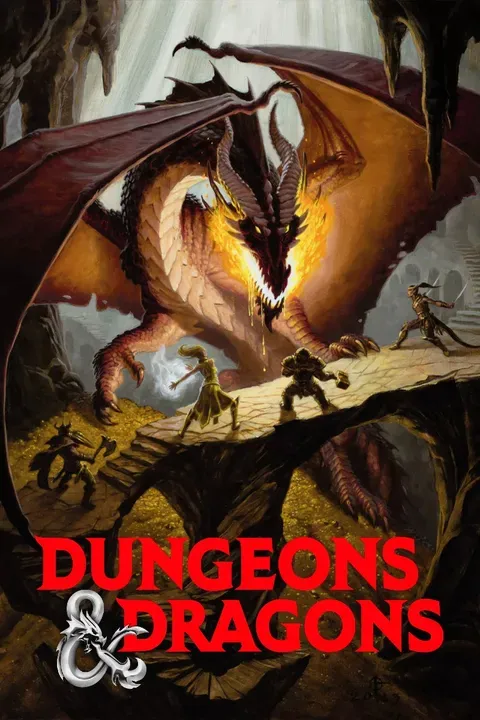
Dungeons and Dragons
A fantasy roleplaying tabletop game designed for adventure-seekers, the original incarnation of Dungeons & Dragons was created by Gary Gygax in 1974.
- Franchise
- Dungeons & Dragons
- Original Release Date
- January 26, 1974
- Publisher
- Wizards of the Coast , TSR Inc.
- Designer
- E. Gary Gygax , Dave Arneson
- Player Count
- 4-8 Players Recommended
- Age Recommendation
- 12+
- Length per Game
- 3 hours +
- Expansions
- Dungeons & Dragons 2nd Edition , Dungeons & Dragons 3rd Edition , Dungeons & Dragons 4th Edition , Dungeons & Dragons 5th Edition

